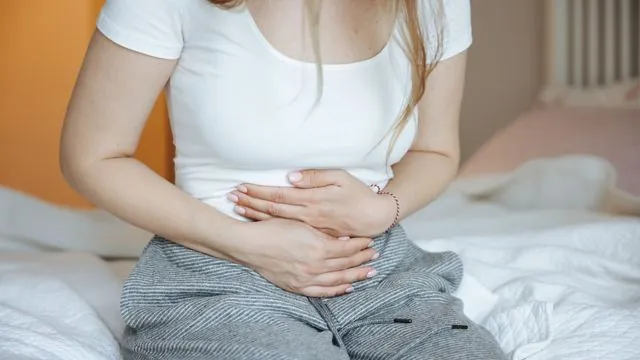
Groundbreaking Research Reveals How Open-Label Placebos Can Dramatically Ease PMS Symptoms!
2025-03-26
Author: Jia
Groundbreaking Research Reveals How Open-Label Placebos Can Dramatically Ease PMS Symptoms!
In a stunning revelation, research from the University of Basel has uncovered that open-label placebos (OLPs) can significantly alleviate the debilitating symptoms of premenstrual syndrome (PMS), a condition affecting nearly 50% of women of reproductive age. These findings not only challenge traditional views about treatment but also highlight the powerful connection between mind and body.
The Impact of PMS
PMS is not just a monthly nuisance; it brings with it a barrage of physical and emotional hardships. Women often report severe symptoms, including abdominal cramps, mood swings, nausea, and anxiety, which can hinder daily activities and reduce overall quality of life. Alarmingly, those suffering from PMS are also at greater risk for mental health conditions, including depression and anxiety disorders.
Conventional Treatments
Conventional treatments for PMS range from natural supplements to prescription medications, including antidepressants and hormonal therapies. However, many of these come with unwelcome side effects, such as drowsiness and weight gain, leaving many women searching for alternatives. This search forms the backdrop for the pioneering study conducted by a team from the University of Basel, in collaboration with Harvard Medical School.
The Research Study
The research, led by Dr. Cosima Locher, Professor Jens Gaab, and Dr. Antje Frey Nascimento, explored the potential benefits of OLPs. Placebos, despite being inactive in terms of ingredients, can trigger real physiological changes when patients believe in their efficacy. Jens Gaab noted that the placebo effect is well-documented, asserting, "Our brain has learned that if we take something regularly, it works—even if it doesn’t contain any active ingredients."
Study Design
To test the impact of OLPs on PMS, the researchers conducted a randomized controlled trial involving 150 women aged 18 to 45 who were experiencing moderate to severe PMS. Participants were divided into three groups: one group continued their regular treatments, while the other two received OLPs. Notably, one of these groups was educated about the placebo's purpose, undergoing a 20-minute information session prior to the treatment.
Results and Findings
The results were impressive. Women who were informed about the placebo experienced nearly an 80% reduction in symptom intensity, a result that took researchers by surprise. Even those who took the placebo without this added information saw symptom relief, although to a lesser extent. Dr. Nascimento remarked on the significance of these findings, stating, "We weren’t expecting the effects to be this pronounced."
Psychological Impact
The study highlighted the importance of patient-physician communication. Women who engaged with healthcare professionals reported feeling more empowered and believed in their body’s capacity to heal itself. This psychological aspect appears to play a crucial role in the effectiveness of OLPs.
Future Implications
Despite the promising evidence, the application of placebos in clinical practice is still in its infancy, with many barriers yet to be addressed regarding regulatory and ethical standards. Nevertheless, the success of this study suggests that OLPs could pave the way for new, safe interventions for PMS that come without side effects.
Looking Ahead
As more research into open-label placebos grows, the potential for new treatment methods within various medical fields looks increasingly bright. This study may just be the tip of the iceberg, sparking further investigation into how patient perceptions can fuel recovery and wellness.
Time will tell how these findings will reshape the future of PMS treatment and empower countless women to reclaim control over their health! Stay tuned for more updates on this groundbreaking research!



 Brasil (PT)
Brasil (PT)
 Canada (EN)
Canada (EN)
 Chile (ES)
Chile (ES)
 Česko (CS)
Česko (CS)
 대한민국 (KO)
대한민국 (KO)
 España (ES)
España (ES)
 France (FR)
France (FR)
 Hong Kong (EN)
Hong Kong (EN)
 Italia (IT)
Italia (IT)
 日本 (JA)
日本 (JA)
 Magyarország (HU)
Magyarország (HU)
 Norge (NO)
Norge (NO)
 Polska (PL)
Polska (PL)
 Schweiz (DE)
Schweiz (DE)
 Singapore (EN)
Singapore (EN)
 Sverige (SV)
Sverige (SV)
 Suomi (FI)
Suomi (FI)
 Türkiye (TR)
Türkiye (TR)
 الإمارات العربية المتحدة (AR)
الإمارات العربية المتحدة (AR)